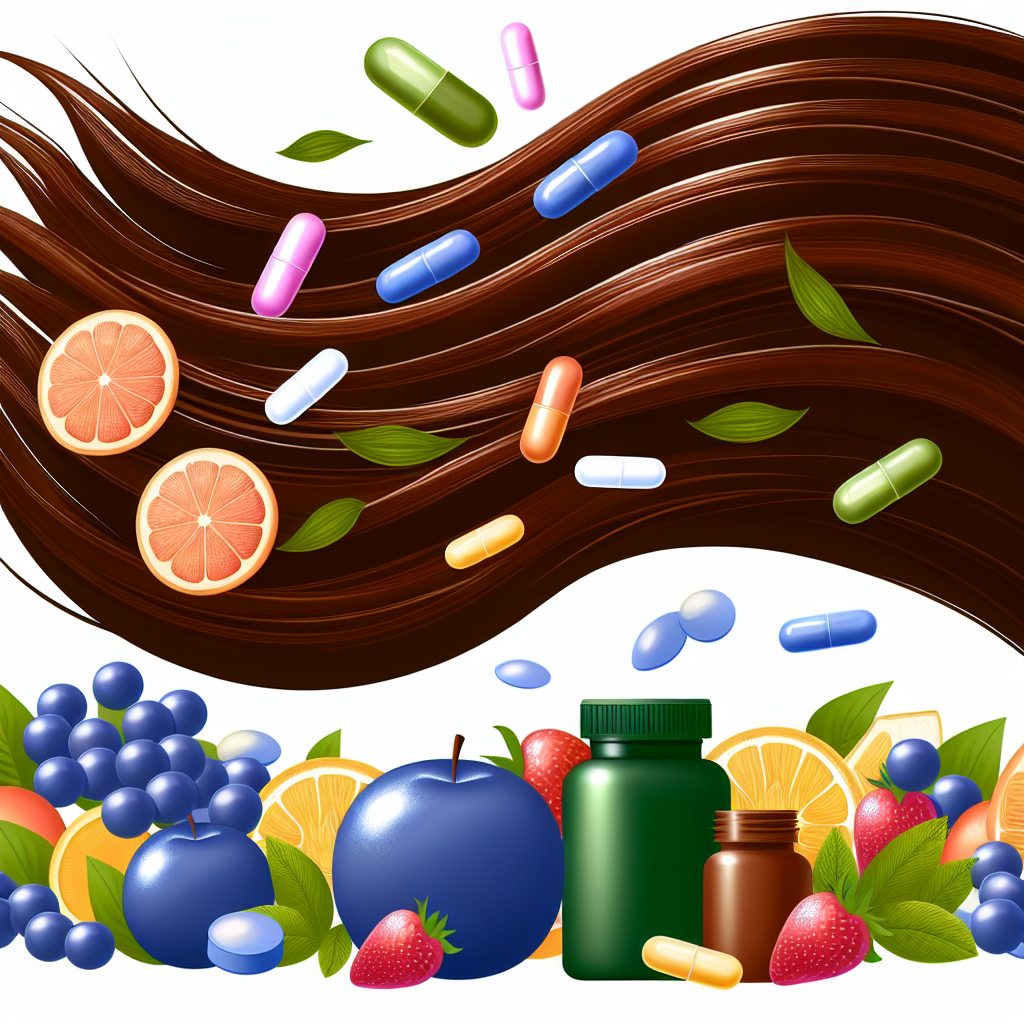Many people want to know which vitamins and minerals are best for hair growth. A diet rich in nutrients is critical for healthy hair.
There are several supplements promoted as “hair vitamins,” but there is limited scientific evidence that they prevent or treat hair loss or other hair conditions. A healthy diet filled with protein, vegetables, fruits and healthy fats is essential.
Hair Growth Tips
Eating nutrient-rich foods can help ensure your body has all the vitamins and minerals it needs to promote hair growth. Add a variety of proteins to your diet, like eggs, fish and legumes (such as chickpeas). Eggs are rich in biotin, which helps strengthen the structure of the hair strands and reduces breakage. Include them in omelets or scrambles and top with avocado slices for an additional boost of healthy fats. Fish, especially wild salmon, herring and sardines, are a source of omega-3 fatty acids, which can help improve scalp health by reducing inflammation and encouraging healthy hair growth. You can also get these healthy fats from nuts (such as pistachios and almonds) or seeds (like flaxseeds, hemp seeds and chia seeds).
Orange foods, including sweet potatoes, carrots and kale, are high in vitamin A, vitamin C and biotin. Aim for at least three servings a week. Vitamin C is a powerful antioxidant that supports the formation of collagen, which helps bolster hair growth and improves elasticity in the skin and scalp. It also aids the absorption of iron, which is another nutrient essential to healthy hair. Foods rich in vitamin C include bell peppers, citrus fruits, strawberries, kiwi fruit and dark, leafy greens. You can also find it in fortified orange juice and some whole grains.
Essential Vitamins
Vitamin A (retinol) helps the skin glands produce an oily substance called sebum that keeps hair healthy. A deficiency of this vitamin is linked to thinning hair and slow hair growth.
Vitamin C (ascorbic acid) promotes collagen production and helps the body absorb iron. A dietary deficiency of this vitamin can result in scurvy, which is associated with hair loss and slow growth.
The water-soluble vitamins B1, B2, B3, B5, and B6, along with folic acid and biotin, are necessary for normal hair function. However, many people do not get enough of these nutrients through their diet and are deficient. Vegetarians and vegans are particularly susceptible to deficiencies of these vitamins, especially if they do not consume dairy products or eggs.
The fat-soluble vitamins A, D, E, and K are also essential for hair growth. In addition to these nutrients, some other key vitamins for growing long, strong tresses are zinc, magnesium, potassium, and selenium. The latter is an antioxidant that protects cells from damage and supports immune function, thyroid hormone production, and cell turnover. Some foods that are rich in these nutrients include sweet peppers, green leafy vegetables, avocado, egg yolks, and fish. You can also find these nutrients in multivitamin supplements. Taking a supplement is an option, but it may not provide as much benefit as making dietary changes.
Health Facts
Many vitamin gummies and supplements claim to help hair growth, but dermatologists are often concerned they may cause harm. These products aren’t regulated by the FDA, so they can contain unnatural amounts of certain nutrients and make false claims. For instance, if you take biotin supplements that contain too much of the vitamin, your body can become deficient. Dermatologists will recommend a blood test to see if you’re deficient before prescribing any supplements.
Instead of these gummies and pills, focus on incorporating foods rich in these vitamins into your diet. Then you can enjoy a nutritious diet, which will encourage your hair and skin to grow strong. If you have a vitamin deficiency, dermatologists can also prescribe prescription treatments that have scientific studies backing them to encourage hair growth.
